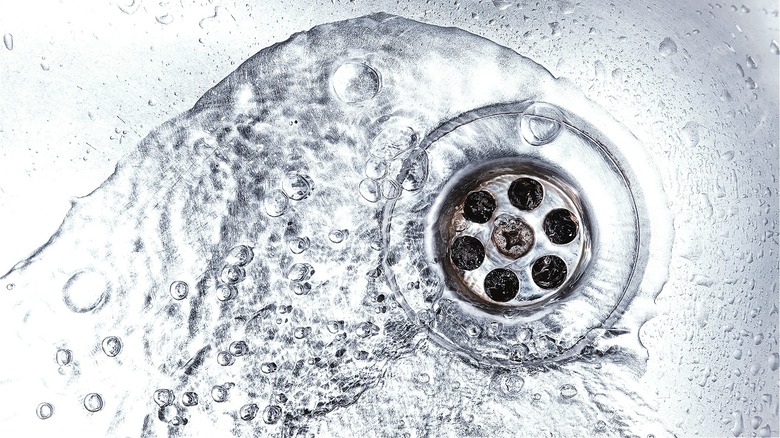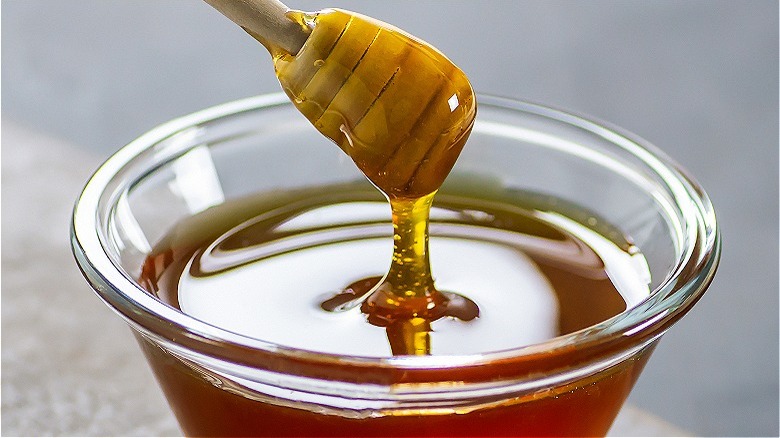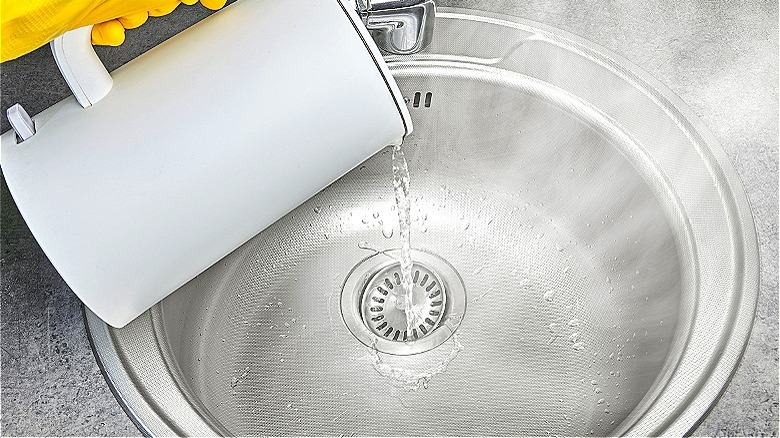Avoid Letting This Common Kitchen Ingredient Go Down The Drain At All Costs
Honey is a delicious ingredient that can sweeten your baked goods or a cup of tea, but pouring leftover honey down the kitchen drain isn't the best idea. Because it's so sticky, honey can adhere to the sides of a drain or the mechanisms of a garbage disposal. Further, other pieces of food could get stuck to the honey and while you may not notice that something is wrong at first, over time, this can lead to clogs and, potentially, other plumbing issues.
If the sugary liquid happens to crystalize inside the drain, this can create a clog. Note that raw honey and better-quality honey are more likely to crystalize than cheaper versions of the sweetener. Though honey is a liquid, the kitchen ingredient is viscous and won't always go straight down the drain. However, by avoiding pouring honey directly into your sink in the first place, you'll help keep your drain free of clogs and your garbage disposal working properly.
How to dispose of honey
Rather than pouring pure honey down your drain, scooping the kitchen ingredient into the trash can is a safer bet. If you're worried about this making a sticky mess, try putting the honey into an old jar or container before throwing it away. Another approach, though, is to dissolve the honey. Because honey is soluble, it'll dissolve in hot water. For those who don't want to put their honey in the trash, the condiment can only go down the drain if it's completely dissolved in hot water beforehand. If the honey isn't dissolved, it still poses a risk of clogging your sink's drain.
While honey probably won't clog your sink as soon as you pour it down the drain, continually disposing of honey this way can cause it to build up in the pipes. With time, the clog can become large and solid, especially if the honey crystallizes. Disposing of honey properly will prevent you from having to deal with such avoidable plumbing issues.
Fixing a drain clogged with honey
If you've been pouring honey into your kitchen sink and you're concerned about a developing clog, you might be able to unclog it yourself. For clogs that don't completely block the pipes, you could try dissolving the honey by flushing the drain with hot water. Try slowly pouring half a gallon of boiling water down the drain and repeat the process if the clog doesn't clear completely. Make sure your pipes aren't PVC, as this method could damage them. For severe clogs, contacting a professional may be the best option.
Like honey, other sticky or thick liquids, especially ones that can turn solid like caramel, shouldn't be poured down the drain. Surprisingly, coffee grounds are also a danger to your drain, as they will eventually build up in the pipes. Making sure that honey and other potentially harmful kitchen ingredients never go down the sink drain is a great way to protect your pipes and avoid calling a plumber.


